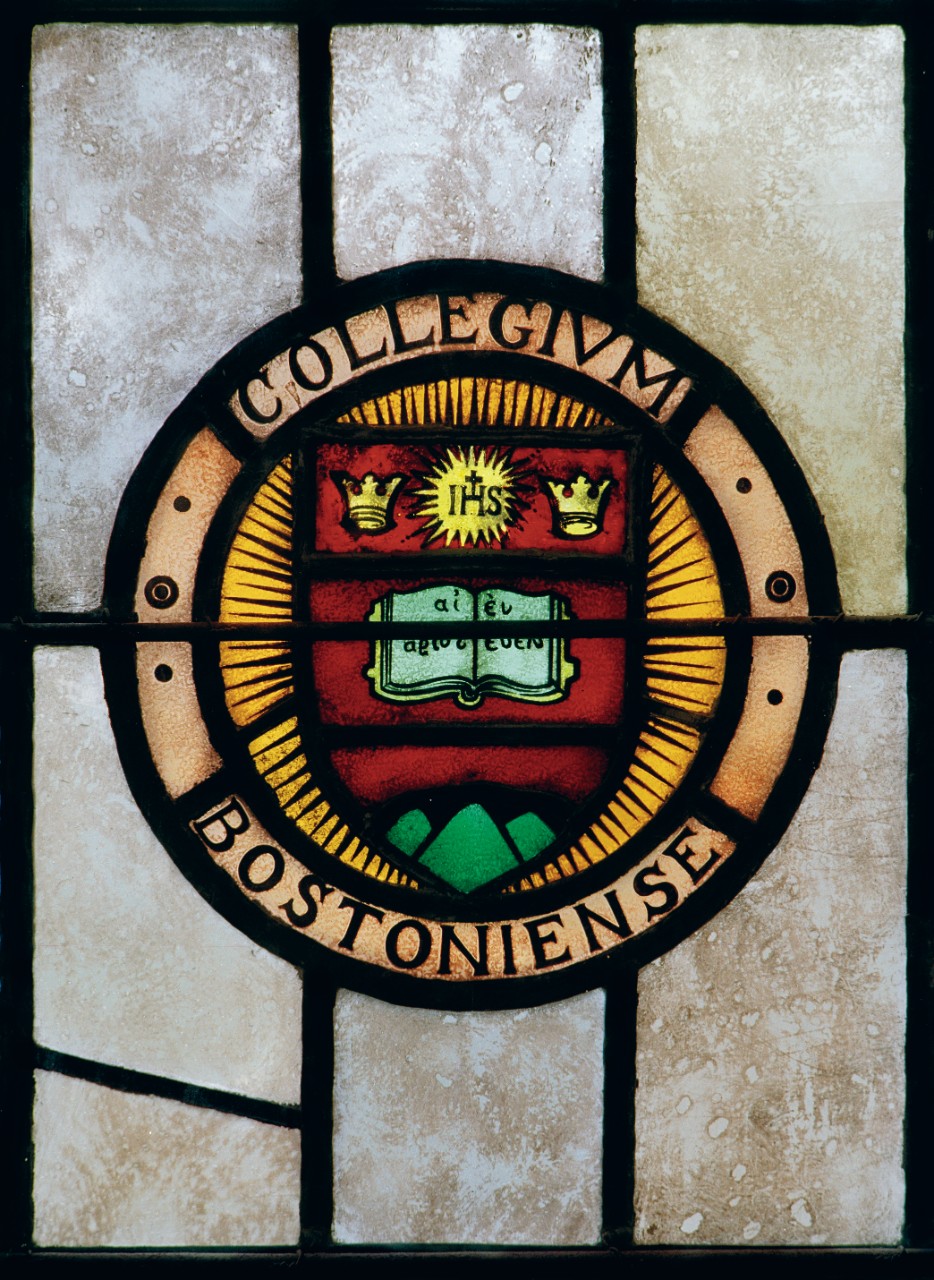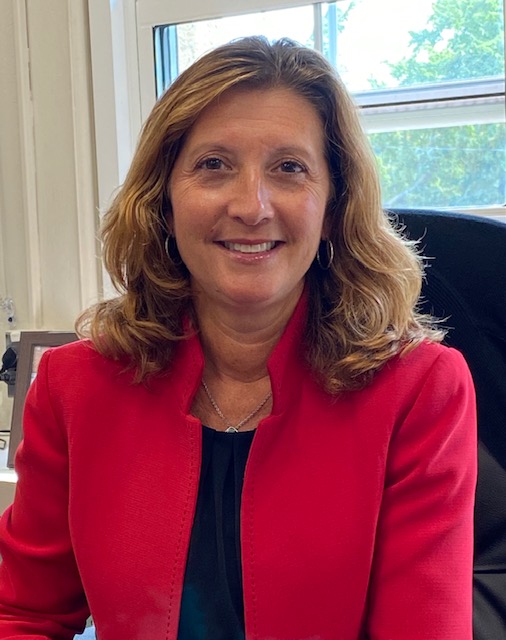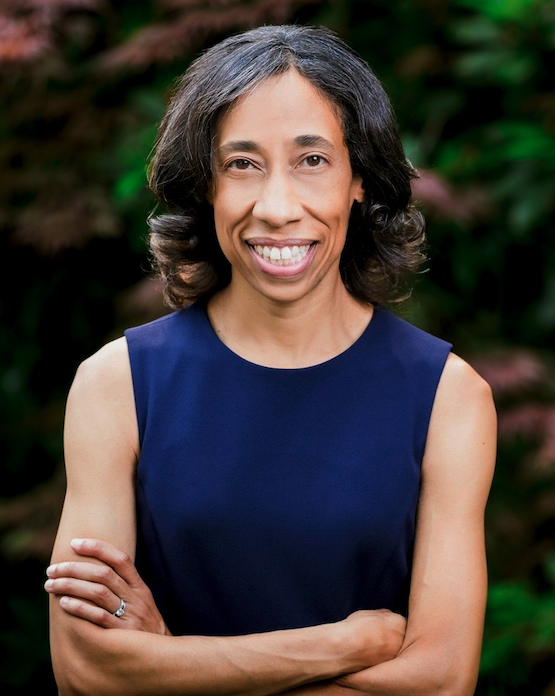

Become a transformational leader and create lasting educational impact. Our Master of Education (M.Ed.) in Educational Leadership & Policy offers pathways for teachers aspiring to school or district leadership, as well as recent graduates and professionals seeking to drive change in community organizations or through policy work.
Please note: The M.Ed. in Educational Leadership and Policy's licensure track has been paused indefinitely and is not available for enrollment in 2026.
The Master of Education in Educational Leadership and Policy addresses leadership challenges through a comprehensive and agile course of study, centered on standards-based reform, technological advances, and evidence-based practices.
Within the M.Ed. in Educational Leadership and Policy, there are multiple pathways:
The program concludes with a reflection seminar where students examine learnings and experiences.
The dynamic faculty of the Lynch School of Education and Human Development are committed teachers and leading scholars.
We organize the teaching and learning experiences to help you develop these behaviors at multiple levels. Through these experiences inside and outside the classroom, we foster students ability and skills to:
We expect our graduates to be able to:
Connect with us!
Talk with our team to learn about the program, the application process, and how we prepare students to lead change.

The Catholic Leadership Cohort, established by the Barbara and Patrick Roche Center for Catholic Education, provides sitting, emerging, and aspiring leaders with a diverse set of skills to effectively lead and transform their school communities. This select group of Catholic school leaders forms a cohort and together take online courses over twenty months to obtain their Master’s in Educational Leadership and Policy. Professional training attends to the leader’s development in four domain areas: Mission and Catholic Identity, Governance and Leadership, Academic Excellence, and Operational Vitality.
Program features:
The next CLC cohort begins in Fall 2026. Priority application deadline: January 15.
Our graduates will apply social justice values and leadership strategies to shape the organizational culture and processes among the professionals (teachers/administrators), community leaders, and parents and families to improve student development.
| Course | Course Title | Credit |
|---|---|---|
| ELHE7701 | Introduction to Educational Leadership and Change Brings a foundational focus to the work of educational administration, centering on the core work of teaching and learning and exploring how that central work is supported by the cultural, technical, political, and ethical systems of the school. | 3 |
| ELHE7726 | Organizational Theory Rather than focusing on traits of the individual leader, this course focuses on the dimensions of organizations and teams that both facilitate and complicate leadership. Examples include managing conflict, developing a shared vision, and differentiating between technical and adaptive change. | 3 |
| ELHE7727 | Family and Community Engagement This course will explore the theory and practice of family-school-community relationships with a particular focus on the role of school leaders in enacting organizational models, educational programs, and political strategies designed to increase authentic parent and community participation in schools and other educational organizations. | 3 |
| ELHE7711 | Using Data and Evidence for School Improvement (alternative: MESA6468 Introductory Statistics) This course prepares leaders to manage initiatives around continuous improvement and data-informed inquiry. On one hand, students will develop basic research skills that will contribute to evidence-based school improvement, including action research. On the other hand, students will explore the landscape of supports and barriers to using data and other evidence effectively in schools. | 3 |
| ELHE7103 | Educational Law and Public Policy This course addresses the political and legal aspects of the role of education in our democratic society. Provides an introductory survey of public policy issues and laws governing preschool, elementary, secondary, and higher education. | 3 |
| ELHE7756 | Reflection on Leadership Seminar The primary purpose of the Reflection on Leadership Seminar is for students to synthesize their learning across their course of studies and prepare to apply this as they continue on their career and vocational journey. The course will be conducted in a seminar format, with students sharing in the leadership of the course discussions and activities. Students will: describe how they have experienced the signature pedagogies across their program of study; provide clear evidence of their level of mastery of the key behaviors for educational leadership; articulate how they envision continuing to grow and innovate as a research-informed practitioner. | 3 |
Students should choose one (1) of the following courses as an additional core course in the program. Students who are more interested in educational leadership should take ELHE7708: Instructional Leadership, while students who are more interested in educational policy should take ELHE7702: Educational Policy in Practice.
| Course | Course Title | Credit |
|---|---|---|
| ELHE7708 | Instructional Leadership Introduces students to many of the contested issues in the field of supervision, such as the relationship between supervision and teacher development, teacher empowerment, teacher alienation, learning theories, school effectiveness, school restructuring, curriculum development, and scientific management. | 3 |
| ELHE7702 | Educational Policy in Practice This course provides an overview of educational policy as it plays out in local practice. Throughout the course, students will develop an understanding of foundational approaches to policy-making, interpretation, and implementation as it plays out in education settings. In addition to providing an overview to the field of educational policy, the course investigates the relationship between policy and practice through attention to: (1) policymaking including policy mechanisms, framing, and policy actors; (2) processes of policy interpretation and implementation; and (3) policy as practice and the role of local leaders in developing policy. | 3 |
| Course | Course Title | Credit |
|---|---|---|
| ELHE7756 | Reflection on Leadership Seminar The primary purpose of the Reflection on Leadership Seminar is for students to synthesize their learning across their course of studies and prepare to apply this as they continue on their career and vocational journey. The course will be conducted in a seminar format, with students sharing in the leadership of the course discussions and activities. Students will: describe how they have experienced the signature pedagogies across their program of study; provide clear evidence of their level of mastery of the key behaviors for educational leadership; articulate how they envision continuing to grow and innovate as a research-informed practitioner. | 3 |
Students must choose 3 electives from the following:
| Course | Course Title | Credit |
|---|---|---|
| ELHE7505 | Transforming the Field of Catholic Education This course explores the history, purpose, current status, and possible futures of Catholic elementary and secondary schools. Students will become conversant with the body of scholarly literature, theoretical and empirical, that defines the field of Catholic education. Though the primary focus will be on Catholic schools in the United States, the course will explore how we can learn from the experience of other religiously affiliated schools here and abroad, and from the experience of Catholic educators worldwide. Special attention will be devoted to how the Ignatian spirituality and pedagogy can be a resource for educators in Jesuit and non-Jesuit schools. | 3 |
| ELHE7704 | Ethics and Equity in Education The course explores how schools are used as a vehicle of the state to de-culturalize various communities of people throughout the country's history. Students will explore how schools can more appropriately promote respect for valuing diversity as a generative source of the country's vitality and its relationship to the global village. The role of educators is not only to act ethically in the many individual situations of their daily professional lives, but more importantly to see that the institutional structures and processes of the school system are themselves reflections of a system of justice and care. | 3 |
| ELHE7707 | Leadership for Social Justice This course introduces students to the theory and practice of leadership for social justice at the school and district level. Definitions, approaches, and controversies in this emerging field will be examined. Readings, films, class discussions, and case studies related to the topics of race, ethnicity, culture, language, gender, social class, religion, sexual orientation, and disability will focus on how these issues affect educators, students and their families in today's K-12 schools. In particular, students will learn about leadership which is culturally and linguistically responsive; strengthens parent-community-school relationships; and formulates diversity policies to promote educational equity for students from diverse groups. | 3 |
| ELHE7705 | Educational Policy Analysis This course provides a foundation for engaging in analysis of educational policy by developing students' knowledge of and experience with tools, data sources, and frameworks that form the toolkit of policy analysts. The course engages with major theories and concepts that guide public policy analysis and provides opportunity to produce novel policy analysis and critique the framing, clarity, and concreteness of published policy analyses and proposed policy tools and solutions. Students will engage with current discourse and considerations in education policy throughout the course, with a particular focus on analyzing policy for equity. By the conclusion of the course, students will be able to engage in public policy analysis and communicate policy issues and analysis that draws on their professional expertise. | 3 |
| ELHE7712 | School Leadership for Emergent Bilinguals | 3 |
| ELHE7702 | Educational Policy in Practice This course provides an overview of educational policy as it plays out in local practice. Throughout the course, students will develop an understanding of foundational approaches to policy making, interpretation, and implementation as it plays out in education settings. We will examine how context shapes the relationship between policy and practice by focusing on sociocultural, organizational, and political influences. The course integrates critical perspectives as well as foundational concepts in our study of policy, highlighting how systems of oppression and power dynamics influence the policy process. During the course, students will have opportunities to apply theories and concepts to their own contexts, engaging in policy analysis and creation through hands-on assignments. The course approaches educational policy as incorporating both formal and informal policies, positioning practitioners as interpreters and implementers of local, state, and federal policies, as well as simultaneously designing and creating policies themselves. | 3 |
| ELHE7610 | Applied Education Policy in the Community Context This course is designed to show students how they can leverage their education policy expertise to support children in their community. In the course, students will work directly with an educational organization that advocates for or creates policies that impact the access and quality of education for historically marginalized students. The readings, discussions, and assignments will deepen students knowledge of educational policy issues and the process for policy implementation. This course material will focus on school boards, community advocacy organizations, and state and local educational agencies. | 3 |
| ELHE7708 | Instructional Leadership (if not taken as a core course) Introduces students to many of the contested issues in the field of supervision, such as the relationship between supervision and teacher development, teacher empowerment, teacher alienation, learning theories, school effectiveness, school restructuring, curriculum development, and scientific management. | 3 |
| Course | Course Title | Credit |
|---|---|---|
| EDUC8100 | Master's Comprehensive Exam In order to ensure that all students graduating from the master's program have a fundamental understanding of their coursework and the field, they are required to take a comprehensive examination covering the broad areas of the core courses. | 0 |
Concentration in Educational Policy Development
The concentration in Educational Policy Development equips current and aspiring leaders in schools and community-based organizations to leverage dramatic organizational change. Through a series of three courses, participants develop a sophisticated appreciation of how policies shape the cultural norms and day-to-day practices at both a micro level (e.g., within institutions) and a macro level (e.g., within a school district, a city, or a state). The goal of the program is to help leaders develop their repertoire of skills to use policy levers to creatively and effectively advance organizational goals.
| Course | Course Title | Credit |
|---|---|---|
| ELHE 7701 | Introduction to Educational Leadership and Change Brings a foundational focus to the work of educational administration, centering on the core work of teaching and learning and exploring how that central work is supported by the cultural, technical, political, and ethical systems of the school. | 3 |
| ELHE 7726 | Organizational Theory Rather than focusing on the traits of the individual leader, this course focuses on the dimensions of organizations and teams that both facilitate and complicate leadership. Examples include managing conflict, developing a shared vision, and differentiating between technical and adaptive change. | 3 |
| ELHE 7727 | Family and Community Engagement This course will explore the theory and practice of family-school-community relationships with a particular focus on the role of school leaders in enacting organizational models, educational programs, and political strategies designed to increase authentic parent and community participation in schools and other educational organizations. | 3 |
| ELHE 7708 | Instructional Leadership Introduces students to many of the contested issues in the field of supervision, such as the relationship between supervision and teacher development, teacher empowerment, teacher alienation, learning theories, school effectiveness, school restructuring, curriculum development, and scientific management. | 3 |
| ELHE 7711 | Using Data and Evidence for School Improvement This course prepares leaders to manage initiatives around continuous improvement and data-informed inquiry. On one hand, students will develop basic research skills that will contribute to evidence-based school improvement, including action research. On the other hand, students will explore the landscape of supports and barriers to using data and other evidence effectively in schools. | 3 |
| ELHE 7103 | Educational Law and Public Policy This course addresses the political and legal aspects of the role of education in our democratic society. Provides an introductory survey of public policy issues and laws governing preschool, elementary, secondary, and higher education. | 3 |
| Course | Course Title | Credit |
|---|---|---|
| ELHE 7705 | Educational Policy Analysis | 3 |
| ELHE 7610 | Applied Education Policy in the Community Context | 3 |
| Course | Course Title | Credit |
|---|---|---|
| ELHE 7702 | Educational Policy in Practice | 3 |
| ELHE 7505 | Transforming the Field of Catholic Education | 3 |
| ELHE 7704 | Ethics and Equity in Education | 3 |
| ELHE 7707 | Leadership for Social Justice | 3 |
| ELHE 7712 | School Leadership for Emergent Bilinguals | 3 |
| Course | Course Title | Credit |
|---|---|---|
| ELHE 7756 | Reflection on Leadership Seminar | 3 |
Strong leadership is vital to the success of Catholic schools and their mission. The Catholic Leadership Cohort, offered by the Barbara and Patrick Roche Center for Catholic Education, prepares current and aspiring leaders to excel as instructional, spiritual, and operational guides. Through a selective, 20-month online Master’s program grounded in Ignatian values, participants develop skills in Mission and Catholic Identity, Governance, Academic Excellence, and Operational Vitality. Join a faith-centered community committed to transforming Catholic education and answering the call to lead with vision, humility, and purpose.
| Course | Course Title | Credit |
|---|---|---|
| ELHE 7701 | Introduction to Education Leadership and Change | 3 |
| ELHE 7505 | Transforming the Field of Catholic Education* | 3 |
| Course | Course Title | Credit |
|---|---|---|
| ELHE 7708 | Instructional Leadership | 3 |
| ELHE 7711 | Using Data and Evidence for School Improvement | 3 |
| Course | Course Title | Credit |
|---|---|---|
| ELHE 7103 | Educational Law and Public Policy | 3 |
| ELHE 7323 | Strategic Management of Human Capital* | 3 |
| Course | Course Title | Credit |
|---|---|---|
| ELHE 7726 | Organizational Theory for Educational Leaders | 3 |
| ELHE 7304 | School Finance and Business Administration* | 3 |
| Course | Course Title | Credit |
|---|---|---|
| ELHE 7727 | Family and Community Engagement | 3 |
| ELHE 7756 | Reflection on Leadership Seminar | 3 |
| ELHE 8100 | Comprehensive Exam | 0 |
Practice critical self-reflection and discernment
Foster an ethical, mission-driven school or educational environment/organization
Create structures that advance organizational and professional learning
Observe, assess, and support effective teaching and instructional practices
Advance equity and agency across multiple constituencies
#20
National ranking for Education Policy program
U.S. NEWS & WORLD REPORT
The Lynch School of Education and Human Development provides more than $11.4 million in financial aid to students each year. As a result, the quality of Boston College’s instruction, the benefit of our alumni network, and the impact a Boston College degree will have on your employment options is both affordable and invaluable.
Fulfilling our social justice mission, our internationally recognized Educational Leadership and Higher Education faculty develop agents of cultural change—reflective practitioners committed to making schools more equitable. Our team integrates interdisciplinary theory with the most current evidence-based practices.

Education:
Beth Godett's experience spans across the education and law sectors, with her research interests lying in the intersection of schooling and policy. Having served in both assistant superintendent and superintendent roles, Godett also has experience working as an adjunct professor of law at both Fairleigh Dickinson University and Rider University in New Jersey.
Godett recently published a new book, titled "Exploring Administrative Decision-Making in Public Education: The Negligence Evolution." The book speaks to how elements of negligence apply in the world of public education, and particularly what school administrators should consider today and in the future that they may not have considered in the past. Her first book, "Toward the Bigger Half: Equity in Public Education," brings stories from law and history to give voice to those in the classroom and beyond.

Education:
At Boston College, Bridget Gough’s doctoral dissertation focused on the perceived influence of social justice leadership on the job satisfaction of novice teachers. Currently the superintendent of the Walpole Public Schools, she focuses on theories of educational leadership and how those theories are authentically enacted in schools and organizations in order to lead and implement change.
Previously, Gough served as an Assistant Superintendent, Director of Curriculum and Instruction. She has 30 years of experience in the field of education, which included roles as a middle school principal, assistant principal and English teacher.

Education:
Leslie Patterson began her career as a math teacher at Newton North High School before accepting a role as associate principal at Lincoln-Sudbury Regional High School (L-S), where she eventually moved into her current role as director of curriculum, instruction, and assessment.
At L-S, Leslie has shepherded a variety of initiatives and gained significant experience in the areas of student support, family engagement, supervision/evaluation, high expectations teaching, strategic planning, school culture, and professional development. Additionally, Leslie has embraced various leadership opportunities that support a positive racial climate.
Leslie earned a B.A. in mathematics and music from Williams College, an Ed.M. and C.A.S. from Harvard Graduate School of Education, and an Ed.D. from Boston College Lynch School of Education and Human Development. Recently, while pursuing her interest in HR, Leslie received the SHRM-SCP certification. Leslie lives in Stow, MA with her husband and twin boys.

Education:
Joelle is a former English teacher, instructional coach, and literacy specialist currently working as the literacy/ELA coordinator for the Newton Public School district. She received her Ph.D. in Curriculum and Instruction from Boston College in 2019 and has taught in the Lynch School of Education and Human Development for the past 10 years.
She researches at the intersection of school leadership, education policy, and English education, with interests in pre-service and in-service writing teacher preparation, critical writing pedagogy, and writing assessment as a matter of policy and practice.
We are an approved teacher preparation program by the Massachusetts Department of Elementary and Secondary Education. Upon successful completion of the Lynch School of Education and Human Development's educator preparation program, students earn endorsement from Boston College for licensure in Massachusetts. For more information about educator licensure, including if you are seeking licensure in another state, please visit the Licensure Disclosure Page.
Prerequisite Information:
Deadlines
Summer 2026:
Fall 2026:
To be uploaded to your online application.
In addition to your academic history and relevant work experience, please include any licenses currently held, any experiences related to global education or global citizenship, any language skills other than English, and any research experience or publications.
Please include educational experiences that occurred in Pre-K to 12th grade classrooms, after school programs, community-based programs, or adult education settings.
To be uploaded to your online application.
In 1,000-1,500 words, describe your academic and professional goals, any experience relevant to this program, and your future plans, expectations, and aspirations.
Tip from the Admissions Team: When identifying a focus for your statement, start with why you’ve chosen to pursue this program and why now. Use anecdotes to support key points, but avoid making it primarily autobiographical.
Two letters of recommendation are required, with at least one preferably coming from an academic source. Applicants who have been out of school for more than a couple of years may submit two professional recommendations. Recommendations should generally come from one of these categories: professors or others who have overseen your academics, work supervisors, or volunteer supervisors.
Tip from the Admissions Team: Reach out to recommenders early to share your graduate school goals and confirm they can meet your deadline. Make sure to enter your recommender's contact information correctly on the application, as it can't be edited after you submit. Taking these steps generally leads to stronger letters and less stress.
Transcripts from all college/university study are required.
For degrees from the United States and Canada, unofficial transcripts may be used for application review. Official transcripts will be required upon enrollment.
Applicants who have received degrees from institutions outside the United States should view the ""International Students"" section for additional credential evaluation requirements.
Please begin your online application before submitting your transcripts. Details on how to submit transcripts and international credential evaluations can be found within the application. In order to ensure your transcript reaches our office, it is important to review and follow the instructions.
GRE scores are not required. If you wish to send GRE scores, the Lynch School GRE code is 3218.
Please view the "International Students" section for information on English Proficiency test requirements.
Fully online programs* do not support sponsorship of an F1 visa for International Students.
Applicants who have completed a degree outside of the United States must have a course-by-course evaluation of their transcript(s) completed by an evaluation company approved by the National Association of Credential Evaluation Services (NACES). Submission of falsified documents is grounds for denial of admission or dismissal from the University.
Applicants who are not native speakers of English and who have not received a degree from an institution where English is the primary language of instruction must also submit a TOEFL or IELTS test result that meets the minimum score requirement.
Please click the link below for full details on these requirements.
Requirements for International Students
*The Master of Education in Educational Leadership & Policy is a fully online program.
Tip from the Admissions Team: Order your credential evaluation and submit all documents to the evaluator at least one month before your program’s deadline. During peak application times, delays are common and can lead to missed deadlines.
How many courses are required for this program?
This program consists of 12 courses for a total of 30 credits.
How long does this program take to complete?
Most students complete this program within two years.
Do you offer graduate course credit transfer?
Up to six credits or two courses may be accepted as transfer credit. Potential transfer credits are reviewed after admission into the program.
How much does this program cost?
Read about tuition, fees, scholarships, and other funding opportunities on the tuition and aid webpage.
Do you offer financial aid?
The Lynch School is committed to helping students understand how affordable an excellent graduate education can be. We offer U.S. citizens and permanent residents access to U.S. federal financial aid and all students are considered for scholarship aid. Your application for admission serves as your scholarship application. To learn more, please visit our tuition and aid webpage.
Is the GRE required for admission to this program?
The GRE is accepted, but is not required.
Who can I contact if I have additional questions or wish to learn more about this program?
Our online graduate admissions team is here to help. For questions about this program or the application process, contact our online graduate admissions team by filling out the form here.
gsoeonline@bc.edu
617-552-4214